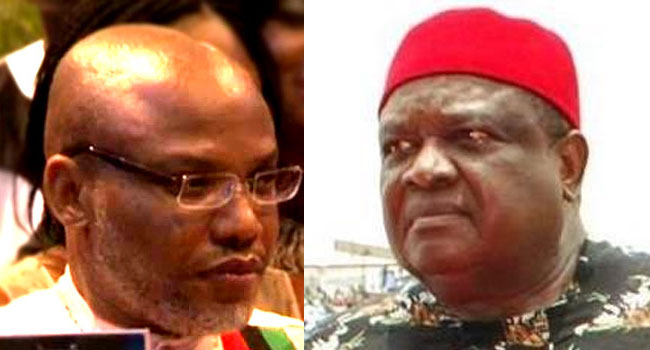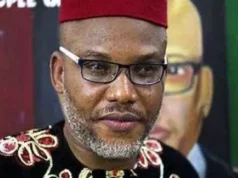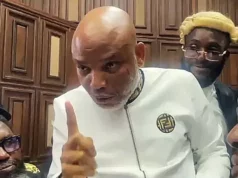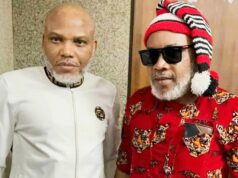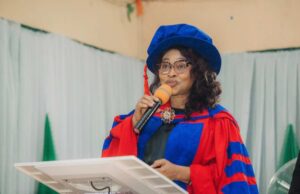The President of Ohaneze Ndi-Igbo, Emmanuel Iwuanyanwu, has distanced himself and the detained leader of the Indigenous People of Biafra (IPOB), Nnamdi Kanu, from the killing of soldiers in some parts of the South-East.
He described the incident as saddening, stating that Kanu was not behind the order for the sit-at-home.
Iwuanyanwu appealed to President Bola Tinubu to use his political power to free Kanu.
READ ALSO: Ohaneze Ndigbo Leaders Visit Nnamdi Kanu In DSS Custody
He spoke shortly after visiting the detained leader in the custody of the Department of State Services (DSS) on Thursday. He also called for the restructuring of the country.
Last week, IPOB declared May 30 as a sit-at-home in the south-east to honour “our heroes and heroines” who died in the civil war between 1967 and 1970.
The “Biafran Heroes Day” sit-at-home declared by the outlawed group paralyzed commercial and economic activities in parts of Anambra, Enugu, Imo, Abia, and Ebonyi States as banks, schools, markets, motor parks, fuel stations, and other public places were shut on Thursday.
Nigerian officials often blame attacks in the southeast on the outlawed Indigenous People of Biafra movement (IPOB) and its armed wing, the Eastern Security Network.
IPOB has repeatedly denied responsibility for the violence.
The group’s leader Nnamdi Kanu is in government custody and faces trial for treason after being detained overseas and brought back to Nigeria.
Separatism is a sensitive issue in Nigeria, where a declaration of an independent Biafra Republic by Igbo army officers in the southeast in 1967 triggered a three-year civil war that left more than one million dead.
Violence in the southeast is just one of the many issues facing security forces with the military also battling a 14-year-old jihadist insurgency in the northeast, gangs who kidnap and kill in the northwest and central states, and piracy in the Gulf of Guinea.

